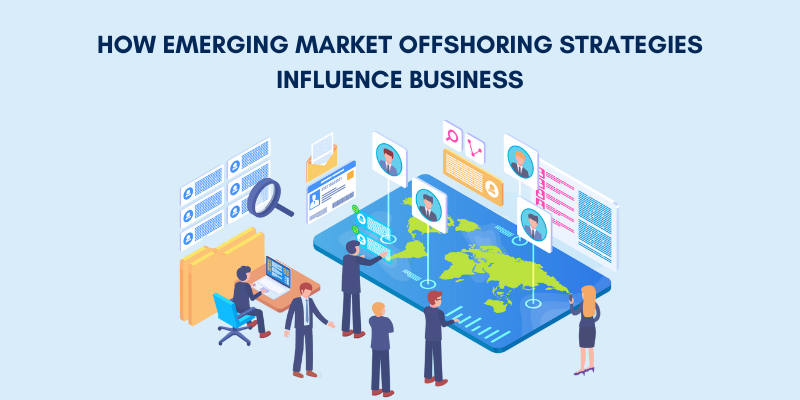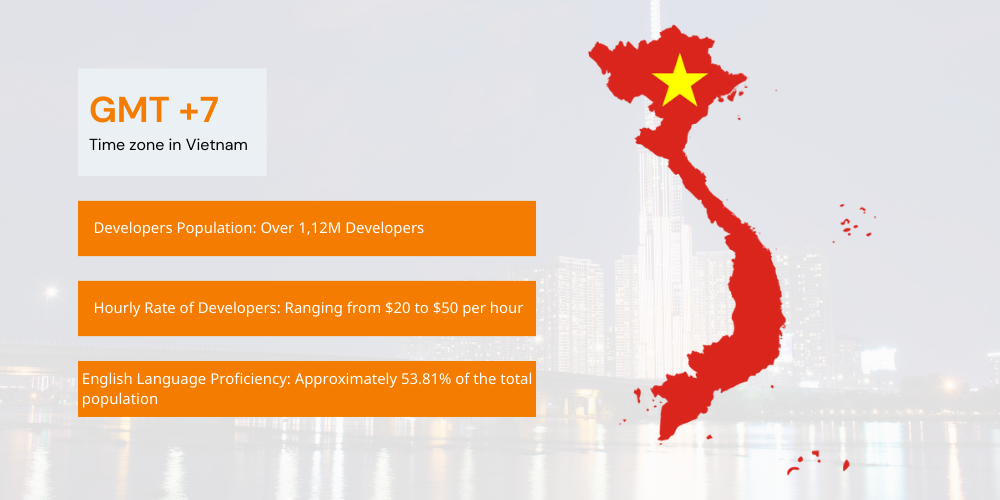Offshoring in Emerging Markets: Fueling Enterprise Growth


Background
Managing your business during economic uncertainty is difficult.
Increasing business costs and the ongoing talent shortage compound the difficulties.
Meanwhile, recent geopolitical volatility in Europe and Asia has increased disruption risks, compelling businesses to consider supply chain diversification.
In this rapidly changing environment, agility and bold strategies are required.
During the pandemic, organizations have become more open to adopting new operational models and remote work, making flexible working arrangements more feasible. Offshoring is a solution that can help your company overcome challenges, maintain a competitive advantage, and accelerate growth.
In this article, I will discuss how OFFSHORING strategies in Vietnam, Thailand, and Indonesia can benefit businesses of all sizes.
What is offshoring, and how does it benefit businesses?
Offshoring is relocating specific business processes to a different country (similar to BPO – Business Process Outsourcing). Working remotely from another country has become more popular, and businesses are more open to acquiring overseas talent. Offshoring of skills is becoming more viable for many job functions. Offshoring management can be carried out by a PEO or EOR firm.
So, what are its benefits? In summary, offshoring can be cost-effective, provide resources to fill workforce gaps quickly, open up opportunities to reach new markets, provide access to a larger pool of talent with specific skill sets, and enable diversification of business operations.
What are the best countries for offshoring?
Offshoring requires a stable, low-risk environment where a business can operate smoothly. As members of the world’s largest free-trade bloc, the Regional Comprehensive Economic Partnership (RCEP) – Vietnam, Thailand, and Indonesia provide significant benefits to businesses by eliminating tariffs and establishing uniform rules for the movement of goods across all RCEP states, including China and Japan.
Other important Offshore-friendly factors in these three emerging markets are financial attractiveness, a skilled and available workforce, and high-quality infrastructure. Let’s take a closer look at this below.
Vietnam
Vietnam’s post-pandemic recovery is gaining momentum. The country’s economy is expected to grow fastest in Southeast Asia in 2022, at 6.9%. Despite the setback caused by Covid-19, Vietnam remains committed to becoming a high-income country by 2045.
Meanwhile, the Vietnamese government continues to implement reforms and offer investment incentives to make the country more accessible to foreign investors. These efforts are bearing fruit, as the country received $4.42 billion in FDI in the first quarter of 2022, a 7.8% increase over the previous year.
Vietnam’s population of over 97 million people, combined with a well-educated workforce, represents a massive potential pool of resources for offshore companies. The literacy rate in 2020 was around 95%, making it one of the highest in the Asia Pacific region.
Offshoring in Vietnam is primarily concentrated in the country’s manufacturing and information technology sectors, which include the manufacture of labor-intensive goods as well as more sophisticated products such as software. The government’s National Digital Transformation Programme, which runs until 2025, will boost IT and technology specialists’ skills development. According to a Google, Temasek, and Bain & Company report, Vietnam’s digital economy is expected to reach US$52 billion in 2025, with a compound annual growth rate of nearly 30%.
Read more: Top 10 Offshore Software Development Companies in Vietnam
Indonesia
For many years, Indonesia, Southeast Asia’s largest economy, was largely ignored when it came to offshoring. However, this is changing. This 270 million-person nation, which has occupied an archipelago longer than the United States, is becoming an increasingly appealing proposition for foreign businesses looking to relocate manufacturing operations elsewhere in Asia.
Companies are drawn to Indonesia’s huge domestic market, and easy access to other fast-growing ASEAN economies as the country’s economy continues to recover.
As the world’s 10th largest manufacturing nation, Indonesia’s attractiveness as an Offshoring location is enhanced by various investment incentives. For example, the Indonesian government introduced the Positive Investment List as part of its Omnibus Law in 2021, which allows companies in most business sectors to apply for 100% foreign investor ownership. The government conducts risk assessments for business activities, with low-risk entities only requiring a business registration number to start. Other incentives include infrastructure support and a guaranteed energy or raw materials supply.
In addition, Indonesia has established 19 special economic zones (SEZs) to attract foreign investment and boost industrial activity. The SEZs, which provide good connections to the rest of the country, easier licensing processes, and tax breaks, were expected to attract more than US$6.2 billion in total investment by the end of 2021.
Because Indonesia’s infrastructure development has been stalled for many years, the government has prioritized this area for rapid change. There are ambitious plans to spend more than $400 billion on a slew of projects by 2024, including 25 new airports, new power plants, 2,000 km of new highways, and more than 3,000 km of rail network expansion. After completing the Palapa Ring national broadband network at the end of 2019, which will provide 4G internet access across the archipelago, the country’s digital infrastructure is also being improved.
Thailand
In the Land of Smiles, which is no stranger to offshoring, world-class hospitality is a given. Thailand rose six places to 21st out of 190 countries in the World Bank’s ease of doing business rankings in 2020.
Following a steady influx of foreign automobile manufacturers since the 1960s, the country has long welcomed foreign-owned businesses, earning the nickname “the Detroit of the East.” International companies are continuing to invest in Thailand’s oil and gas sector.
The Thai government has implemented many initiatives to encourage investment, including reducing red tape and digitizing processes. Foreign investment has recently increased and diversified due to these investment-friendly policies, including a diverse range of technology, digital services, and cloud computing firms.
Thailand has a lot to offer companies looking for Offshoring solutions. Southeast Asia’s second-largest economy is exceptionally well connected to neighboring ASEAN economic powerhouses. It also has a highly skilled workforce to draw from among its 69 million people.
In the coming years, large-scale infrastructure projects in Thailand should increase interest in offshoring, with high-speed rail lines and new and expanded ports assisting the country’s establishment as an ASEAN transportation hub.
Take Advantage of Offshoring Opportunities
Vietnam, Indonesia, and Thailand are going above and beyond to create an investment-friendly environment and make it easier for foreign companies to establish themselves quickly and efficiently. In addition to supporting traditional, labor-intensive industries such as manufacturing, their young and digitally savvy populations can assist organizations in developing a future-ready tech workforce in the software, cloud computing, and AI sectors.
With businesses facing increasing resourcing and trading challenges in their home markets and elsewhere, these fast-emerging Southeast Asian countries present tremendous new opportunities for companies looking to spice up their growth strategies.
Are you ready to expand your business through offshoring?
The advantages of an offshore company allow your company to grow faster and more efficiently. You can devote more time to your core business operations while ensuring that the rest of your teams consistently do their jobs. This is especially evident when you select a reputable offshoring partner to assist you in building and managing a highly skilled offshore team for your company.
Are you considering starting with offshore support services? Get a free assessment now and let us show you how Bestarion can help your company.

